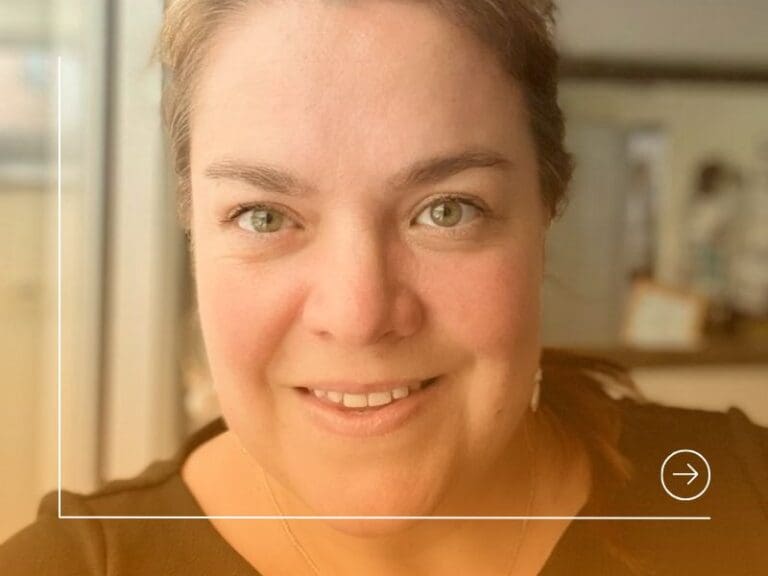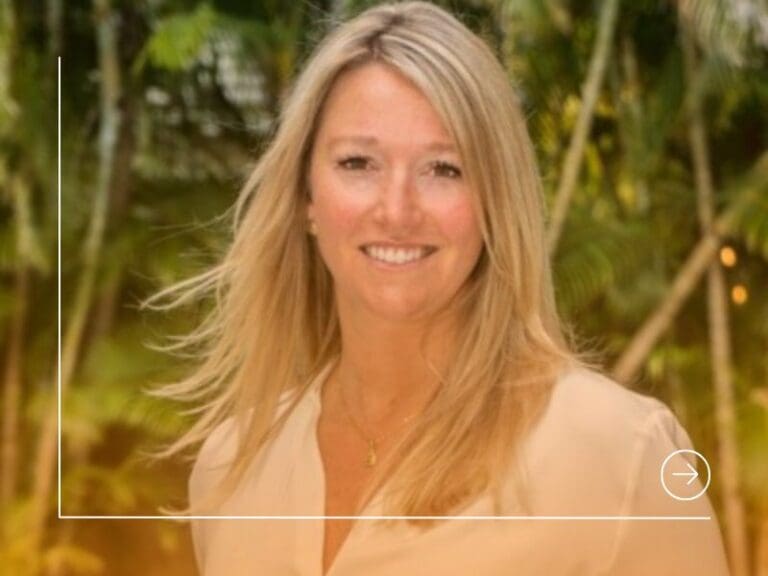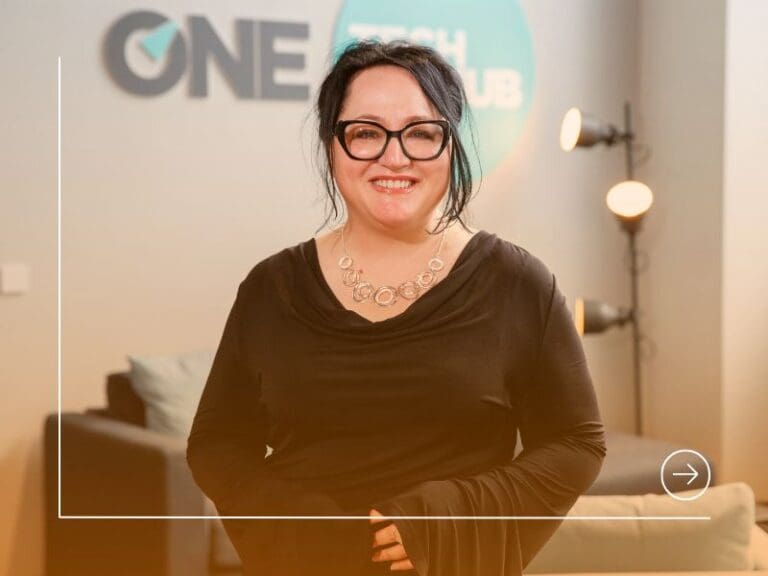Lee never imagined she’d end up in data.
With a background in Biological Sciences and a passion for discovery, she carved her own route into analytics through determination and retraining. Now, she works in cloud consulting, turning complex information into insights that drive business growth.
How did you land your current role? Was it planned?
Landing the role I’m in today was anything but planned. I studied Biological Sciences at university, and my dissertation ended up being surprisingly data-heavy. Most of my work was done in Excel and a little bit of SPSS, and at the time, I didn’t really know how to code. If someone had told me back then that I’d one day become a Data Analyst, I wouldn’t have believed them.
After graduating, I realised that what I enjoyed most wasn’t just the biology — it was the analysis behind it. I became fascinated by the stories that data could tell. That curiosity led me to take a leap of faith: I joined an intensive three-month Data Analysis Bootcamp. I trained full-time, 9 to 5, every weekday, while working part-time in hospitality on the weekends. It was exhausting but transformative. I learned how to code, visualise data using proper analytical tools, and developed the soft skills essential for translating data into meaningful insights.
When the bootcamp ended, I wasn’t sure what to expect — but I was determined to break into data professionally. That’s when I discovered Dot Collective, a consultancy with a training-focused Academy programme. I applied, got in, and immersed myself in a world of business and data analysis, data modelling, and business intelligence.
This experience changed everything. I was honoured to receive the Academy Graduate of the Year award, and later, the Rising Star award. Since then, I’ve worked on three fascinating and very different projects, each one expanding my understanding of how data can drive decisions and shape businesses within varying industries. Most recently, I was promoted — a milestone that feels like both an achievement and the beginning of the next chapter.
Looking back, I never could have predicted this path. But that’s the beauty of data — sometimes, the most unexpected patterns lead to the most meaningful outcomes.
What are the key roles in your field of work, and why did you choose your current expertise?
In my field, several key roles make the data ecosystem work – Data Architects, Data Engineers, Data Analysts, and Delivery Managers. Each plays a vital part: Data Architects design the frameworks that make data usable; Engineers build and maintain the pipelines; Analysts extract and interpret insights; and Delivery Managers ensure everything aligns with business goals.
I chose to focus on data analysis because I’m fascinated by the stories hidden within data — the patterns that reveal how things really work. In a way, it’s not so different from why I was drawn to Biology. Both disciplines are about curiosity, observation, and uncovering meaning from complex systems. Whether it’s analysing cells under a microscope or data in a database, the goal is the same: to understand and explain the world a little better.
Did you (or do you) have a role model in tech or business in general?
I’ve been fortunate to have a role model in tech, Eva Gilburt, my Head of Practice. My very first project was with her when she was a Tech Lead, and I learned so much under her guidance. It wasn’t just about the technical skills — it was about how to work with people, how to stay composed under pressure, and how to approach challenges with both logic and empathy.
Eva taught me the importance of resilience, the ability to keep going even when things don’t turn out as expected. She also showed me what adaptability and patience look like in practice. Now that she’s Head of Practice, I’m even more inspired. She manages an incredible range of responsibilities and still finds the time to check in with her colleagues individually. It’s a reminder that great leadership is as much about people as it is about performance.
What are you most proud of in your career, so far?
What I’m most proud of is simply getting here in the first place! I grew up in a socioeconomically disadvantaged area — a place where resources were stretched and teachers were often exhausted. There wasn’t anyone to guide me on how to get into a corporate role or an office-based career. Most people I knew worked in physical labour, hospitality, or beauty.
I started working part-time in hospitality when I was about fifteen or sixteen. I continued all the way through university, and up until the end of the Data Analysis Bootcamp. Those experiences taught me discipline, empathy, and the value of hard work.
Breaking into a data career from that background wasn’t easy. It takes determination to want more, to see a different path for yourself, and to believe you can get there when you’ve never seen anyone do it before. For me, it’s a reminder that the starting line is different for everyone — and that makes every milestone along the way worth celebrating.
What does an average work day look like for you?
An average day for me begins with a morning stand-up, where the team shares what we’ve accomplished, what we’re currently working on, and what’s next on our list. Once that’s done, I grab a cup of coffee and dive into the day’s tasks.
My work often involves gathering business requirements through conversations with stakeholders — understanding what the client truly needs from their data. From there, I might be completing mapping files for data migration, analysing and cleaning datasets, or designing and building data models in tools like DBT.
No two days are quite the same. As a consultant, every project brings a new challenge — a new business problem to solve, a new system to understand, or a new skill to stretch. That variety is what keeps the work exciting; you’re constantly learning, adapting, and finding creative ways to turn data into insight.
Are there any specific skills or traits that you notice companies look for when you’re searching for roles in your field?
Alongside technical skills such as SQL, Python, and Power BI, soft skills like communication, proactiveness, and teamwork are some of the most sought-after in data analysis. The ability to gather requirements, design a solution, and communicate insights back to the business takes both analytical precision and emotional intelligence.
It’s not just about writing clean code or building visualisations — it’s about understanding people, asking the right questions, and translating complex data into stories that drive real-world decisions.
Has anyone ever tried to stop you from learning and developing in your professional life, or have you found the tech sector supportive?
I feel incredibly fortunate to have started my career with The Dot Collective. From day one, I’ve received nothing but support and encouragement to expand my skills and knowledge. The company has built a culture rooted in authenticity — where people come first. That sense of openness means colleagues are always willing to share knowledge, offer guidance, and celebrate each other’s growth. It’s an environment that not only values technical excellence but also personal development and genuine connection.
Have you ever faced insecurities and anxieties during your career, and how did you overcome them?
I’ve definitely faced insecurities and anxieties throughout my career, especially when I was just starting out. I still remember wondering if there had been a mistake when I received my first job offer. When you grow up in an environment where support is limited, (not because people don’t want to help, but because they don’t always know how) you have to find that belief within yourself.
It’s not easy, but I’ve learned that your reality is often shaped by your mindset. We hold more power than we think, and sometimes the hardest part is allowing yourself to believe that you deserve to be where you are.
Entering the world of work can be daunting. Do you have any words of advice for anyone feeling overwhelmed?
If you feel overwhelmed or daunted by uncertainties entering the working world, give yourself space to breathe, and then keep going. Sometimes it will feel like you’re putting in work and nothing is happening, but seeds take time to germinate under the surface before buds sprout. Every step you take brings you closer to where you want to be, as long as you nurture yourself with patience and consistency. Have faith that your flowers will bloom in their own time.
Remember: you don’t have to face everything at once. Ask yourself, What can I do today? In the next hour? In the next minute? Take it one step at a time — growth is still growth, no matter the pace.
What advice would you give other women wanting to reach their career goals in technology?
Be curious. Learn everything you can, then put it into practice to show yourself that you can do it. Growth is a mindset, and the journey is just as important as the destination. Stay open to the possibility that things may not turn out exactly as you expect, because sometimes, they turn out even better.








